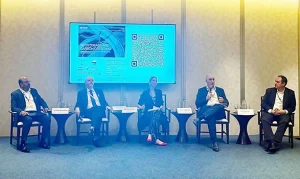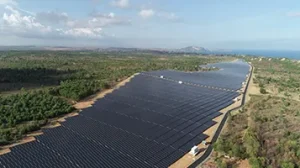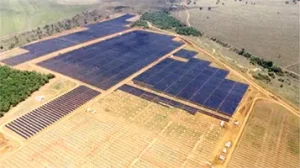Welcome to the maiden voyage of our newsletter, a chronicle of our collective efforts to reshape our world into one that thrives climate action and sustainably. As stewards of our planet’s future, we embark on a journey through the heartlands of carbon offsetting, regulatory landscapes, and the transformative power of community action. Within these digital pages, you’ll discover the heartbeats of our initiatives, the milestones of our progress, and the visions that guide our every endeavor.
Project Registration Highlights
Projects Submitted
A staggering 1,540* projects have been submitted to GCC, showcasing a profound commitment to carbon reduction and environmental stewardship. These projects have been submitted from more than 43 countries of different regions, as under.
Registered Projects
As of today, we proudly announce the registration of 143 projects*, each representing a significant milestone in our collective efforts towards a more sustainable future. Other projects are under different stages of active GCC registration process, which mainly includes Completeness Check, Project Verification and the final stage of projects submitted for registration.
Featured Projects
Issuance Snapshot: Testament to Progress
Developments in the GCC Article 6 National Registry
The GCC’s National Registry is designed to provide a seamless, intuitive, and secure digital experience, ensuring ease of use for all stakeholders involved. Major advantages of Operationalization of Article 6.2 with GCC National Registry Solution is as under:
GCC team has recently published a booklet describing details about its Integrated and Interoperable Carbon Market & National Registry Infrastructure for Implementation of Article 6.2 of the Paris Agreement.
Events Highlights
Jan 2025

GCC–Arab League Collaboration
Feb 2025

Carbon Forward Middle East 2025
Feb 2025

IETA MENA Carbon Market Dialogue
Mar 2025

ZET Financing Workshop


 Located in Binh Thuan Province, Viet Nam, the 40 MW Mui Ne Solar Power Project harnesses mono-crystalline solar technology to generate clean electricity. By supplying over 61,500 MWh annually to the national grid, the project displaces fossil fuel-based power and is expected to reduce approximately 53,203 tCO2e each year.
Located in Binh Thuan Province, Viet Nam, the 40 MW Mui Ne Solar Power Project harnesses mono-crystalline solar technology to generate clean electricity. By supplying over 61,500 MWh annually to the national grid, the project displaces fossil fuel-based power and is expected to reduce approximately 53,203 tCO2e each year.


 Situated in Minas Gerais, Brazil, the Coromandel Solar Project comprises two photovoltaic plants— UFV Coromandel 1 and 2—with a total installed capacity of 60 MW, spanning over 193 hectares. The project delivers approximately 159,184 Mwh/year of clean electricity annually to Brazil’s National Interconnected System (SIN), effectively displacing fossil fuel-based generation.
Situated in Minas Gerais, Brazil, the Coromandel Solar Project comprises two photovoltaic plants— UFV Coromandel 1 and 2—with a total installed capacity of 60 MW, spanning over 193 hectares. The project delivers approximately 159,184 Mwh/year of clean electricity annually to Brazil’s National Interconnected System (SIN), effectively displacing fossil fuel-based generation.





